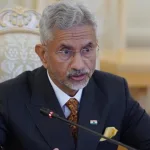EMPOWERING CITIZENS
In a bid to enhance citizen services and accessibility, the Central Government has established Common Service Centers (CSCs) in the picturesque region of Jammu and Kashmir. These centers serve as crucial hubs for a diverse range of services, simplifying essential processes for the residents of the state.
CSCs in Jammu and Kashmir offer a myriad of services catering to various needs. Among the key services provided is Aadhar Card registration and enrollment, ensuring that residents can easily obtain this essential identification document. The centers facilitate the download and printing of E-Aadhar letters, adding a layer of convenience for individuals requiring quick access to their Aadhar information.
Additionally, CSCs play a vital role in delivering various insurance services, contributing to the financial security of the local population. Whether it’s Passport assistance, LIC services, or E-Nagrik & E-District services such as Birth and Death Certificate issuance, these centers act as one-stop destinations for citizens seeking government-related documentation.
One notable feature of CSCs in Jammu and Kashmir is their role in Ration Card application processes. Residents can avail themselves of assistance in completing the necessary forms, ensuring access to essential food supplies. The centers also facilitate services like Pension application, NIOS registration, and PAN Card processing, streamlining bureaucratic procedures for the convenience of the public.
The establishment of CSCs reflects the government’s commitment to bridging the urban-rural divide, bringing critical services closer to the doorstep of citizens in Jammu and Kashmir. This initiative not only fosters ease of access but also promotes inclusivity by catering to a wide range of essential needs.
As residents avail themselves of the services provided by these centers, the impact on the overall efficiency of administrative processes in Jammu and Kashmir becomes increasingly evident. The CSCs stand as beacons of progress, transforming the way citizens interact with government services and contributing to the overall development of the region. In essence, they represent a significant stride towards a more accessible, efficient and citizen-centric governance model in Jammu and Kashmir.
(Author is Advocate and Columnist)





